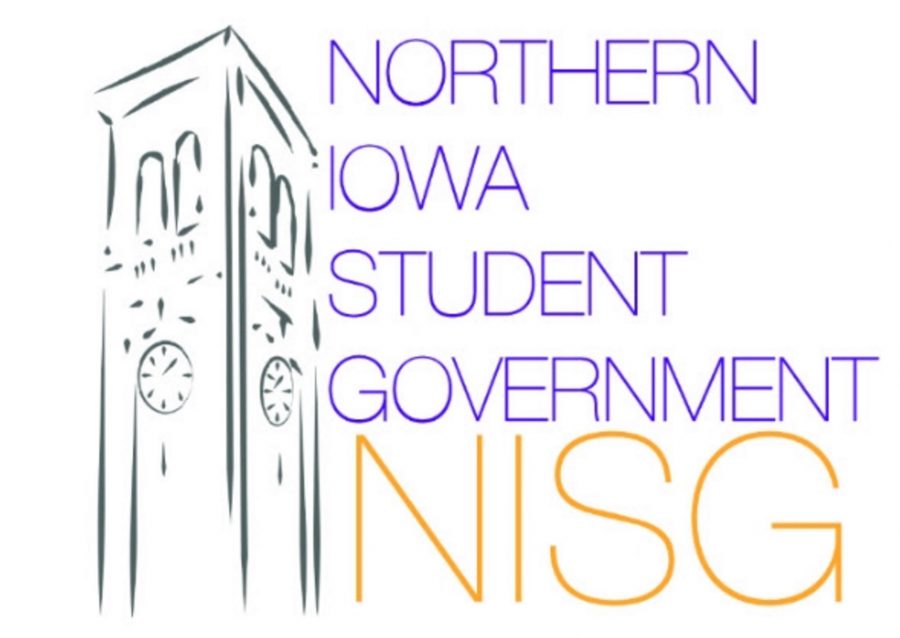NISG playing fast and loose with rules, constitution
Feb 8, 2017
On Feb. 21, students may be given the opportunity to vote on, and therefore ratify, three amendments to the constitution. These amendments are substantive changes that address real issues that the senators have identified with the constitution, and add a new paid executive branch officer. Whether these amendments should be enacted should be decided by the student body.
Unfortunately, until the publication of this article no one outside of Northern Iowa Student Government had published any of these amendments. That’s a problem, because you, the students, will be asked to vote on something that very few people have seen.
The senate has made an honest mistake in their understanding of the constitution and bylaws. This honest mistake, however, is emblematic of a year of the student government playing fast and loose with the rules.
The NISG Constitution stipulates that it is the responsibility of the Speaker to appoint these new senators. On the Senate session of September 21, the agenda listed new appointments as executive orders (EOs) “Sponsored by President Flesch”. At my request, another senator called a point of order, indicated this issue, and these executive orders were altered to Student Senate Resolutions (SSRs). That same meeting the Speaker called a vote without a motion; another small mistake that lends itself to describing a pattern.
Some months ago, the President of the Student Body stopped signing new legislation. The constitution stipulates that all legislation passed by the Senate may be signed or vetoed by the President. The signature line was changed from “Hunter Flesch – President” to “Cavan Finn – Speaker” on some date.
Dozens of bills funding or recognizing new student organizations have not been signed and enacted properly. Fortunately for the student body, the constitution states, “Should the legislation be neither signed nor vetoed it shall be enacted following the next regular meeting after passage.” Were it not for this clause of the constitution, tens of thousands of dollars in funding bills and dozens of student organization registrations would have been enacted illegally.
This brings us to the constitutional amendment and changes to the bylaws over the past two weeks. Student Senate Bill 2017-75 is unconstitutional if it is enacted today. The bill changes the bylaws to add a Chief of Staff to the executive branch, among other stipulations. That change however requires a constitutional amendment to be valid: the constitution defines how executive officers may be created, and the by-laws, which are more flexible, allow senate to change the responsibilities of these officers.
The Senate committee that drafted this bill recognized this fault, and wrote an additional bill amending the constitution, SSB 1017-83. This bill proposes an amendment to add the Chief of Staff position, but it incorrectly stipulates that it is contingent on the passage of the bylaws change.
This is backwards, the bylaws change must be contingent on the constitutional change. Much as students have learned in their government civics class, the constitution is the ultimate authority, and the laws must be subordinate to the constitution. The Senate has put the cart before the horse, enacting bylaws changes before the constitutional amendment that would authorize them.
These fumbles now threaten to deprive the senate of its ability to propose constitutional amendments. Again, the constitution states:
“Amendments to this Constitution may be initiated by a two-thirds vote of the Senate or by petition of fifteen percent of the Student Body. Amendments shall be ratified by a majority vote of the Student Body voting in either a general or special election. Each amendment shall be presented in bill form and shall have two readings before the Senate, and the proposed amendment must be published at least two weeks before the vote.”
As of this writing, the three proposed amendments have not had their two readings in senate, thus there is no proposed amendment to be published. In fewer than thirteen days students may be asked to vote on these amendments, though none are published on the NISG website or on any other medium available to them.
The Northern Iowan was likely not aware of this requirement; inarguably the onus should not be on independent journalists to carry out the constitutional requirements of the student government.
These earnest mistakes culminate to describe a year of generally positive senate and executive activity. The Senate and executive branch have gotten along amicably with little conflict. That achievement after a difficult year marked by discord should be emphasized; these small errors are ultimately correctable, even if the amendments are delayed a year as a result, no serious harm to student organizations transpired.
Still, it’s the position of this writer that the constitution is too important to override, and rewarding procedural mistakes by ratifying these amendments would set a precedent that the Northern Iowa Student Government can change its rules on a whim. The constitution, bylaws, and procedural rules are the bedrock of constitutional government, that much is the same whether it’s NISG or the United States Government.








